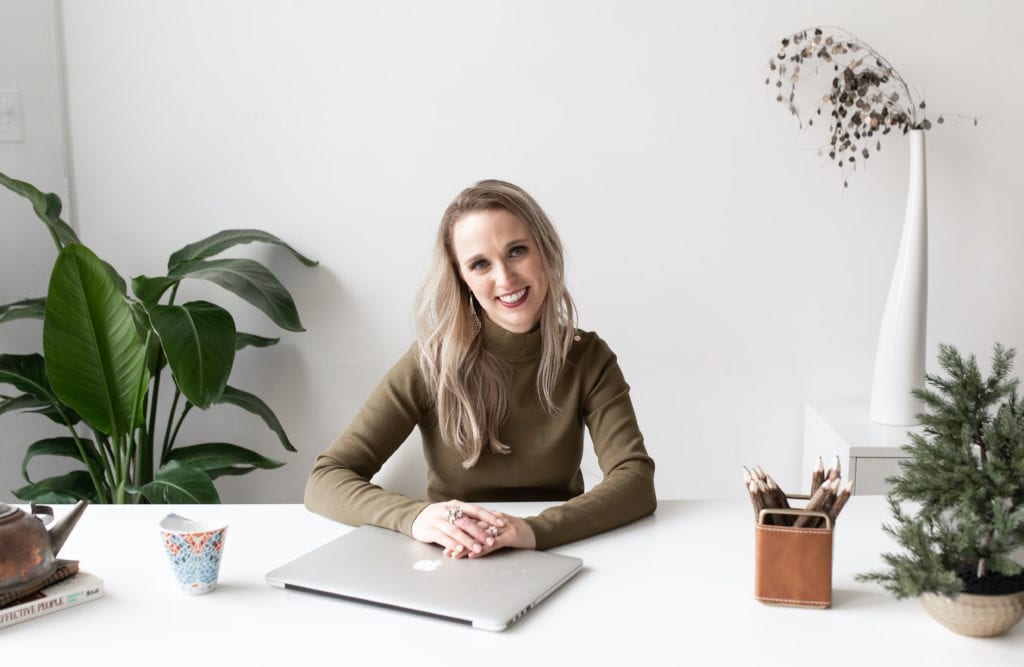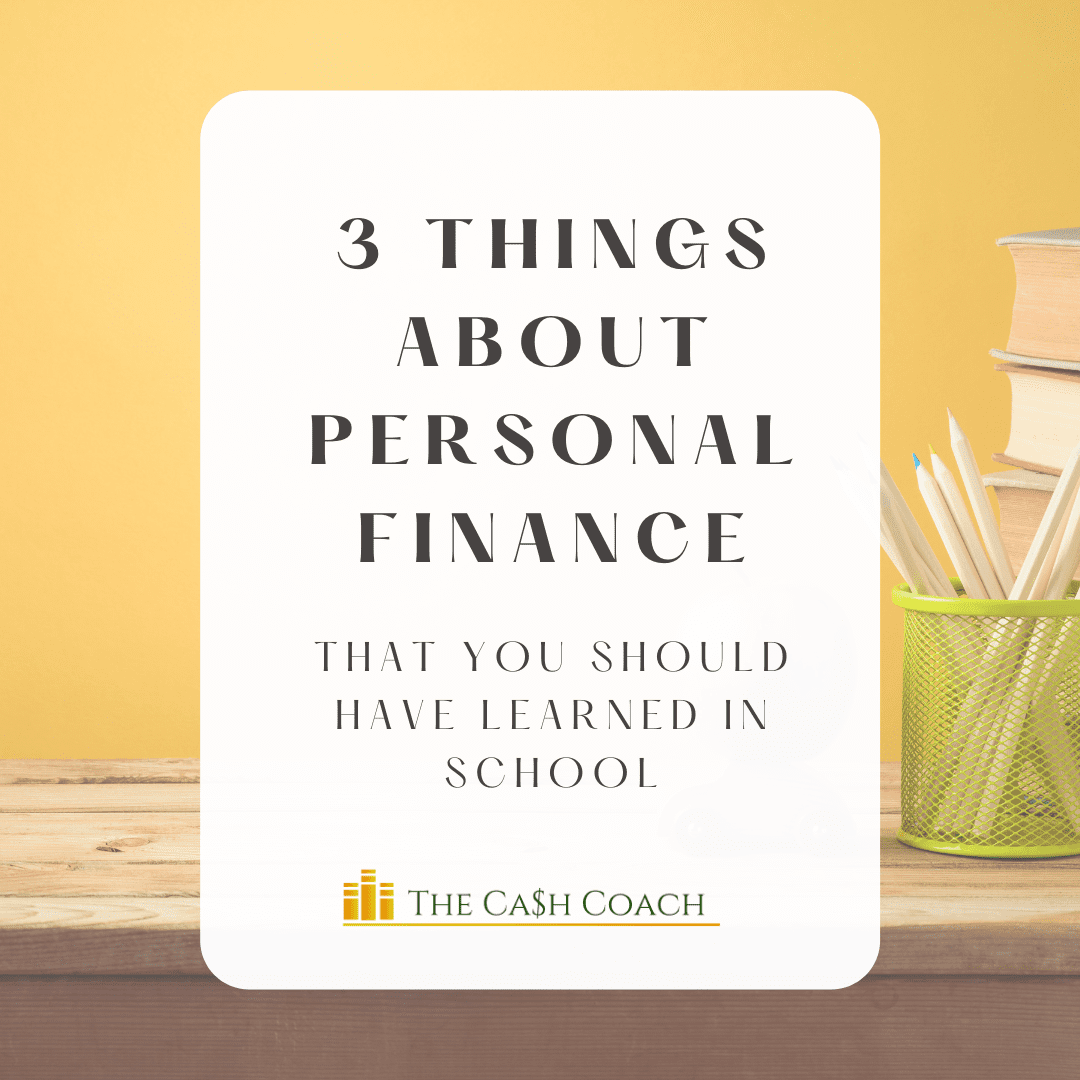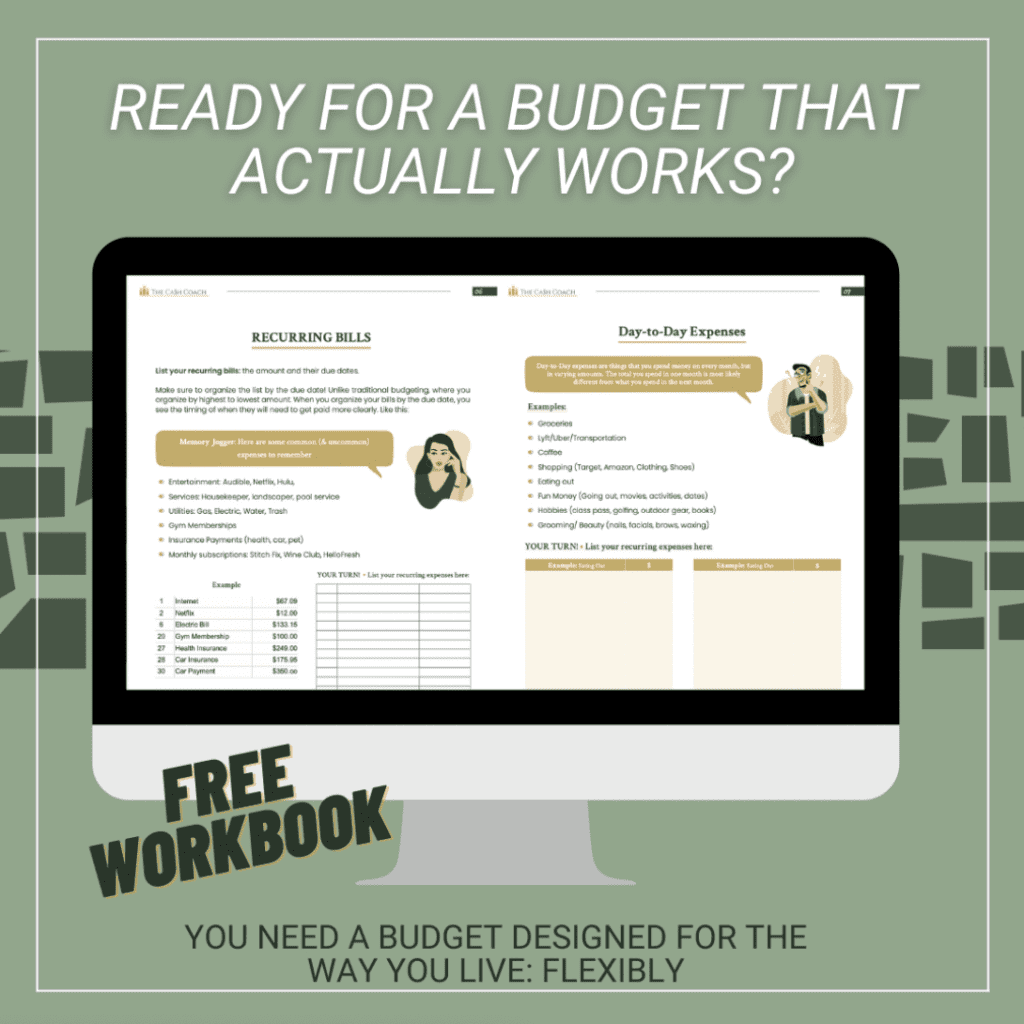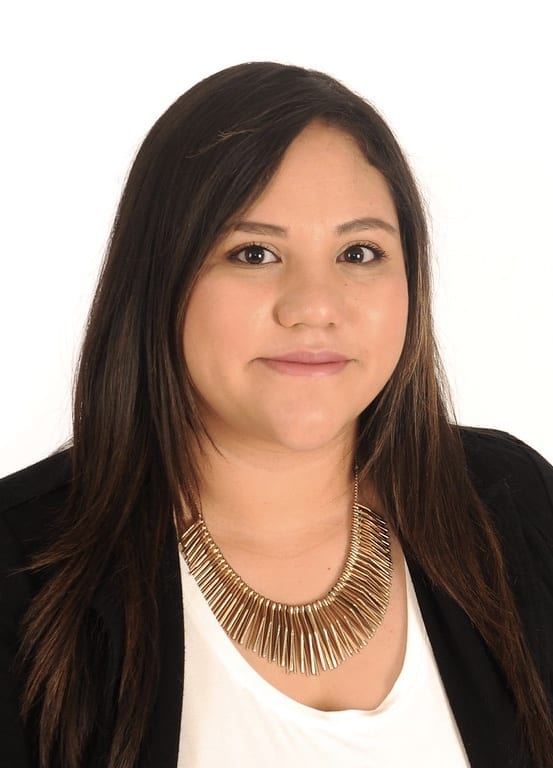I will be on a soapbox about this personal finances topic forever:
PERSONAL FINANCE SHOULD BE TAUGHT IN SCHOOL!
It’s so crazy that we don’t teach young adults how to manage money in school because….
- Money touches so many aspects of our lives – It influences our lifestyle, decisions, and emotions. Whether we realize it or not, money acts in the background of life, greatly affecting our emotional health and well-being.
- Lack of financial knowledge has real consequences – we could help people avoid debt & financial emergencies with education.
- Where else are you supposed to learn it? Often our parents’ financial habits are just as uneducated. They learned from their parents, who learned from thiers… and so on. We are all winging it, generation after generation. Let’s break the cycle.
Recently I polled my clients about things they wished they learned at an earlier age about personal finances. Here are their top 3 plus my quick advice around how to educate yourself on each topic:
1) How to Budget
I couldn’t agree more!
The most common issue I hear when it comes to personal finances is:
Budgeting seems so dang difficult.
It’s also one of the top issues we work on in coaching, so if budgeting is a struggle, consider setting up a Discovery Call with me to talk about it.
FYI: You aren’t alone. Over 90% of people have tried and failed at a budget. Here’s why it’s hard for most people:
If you haven’t yet, grab your copy of my Secret Sauce for creating a budget that actually works:
2) To Pay Yourself First
That’s one of the most powerful phrases in personal finance, in my humble opinion!
I recommend automatically routing a specified savings contribution from each paycheck at the time it is received. Do not wait to save what you have left at the end of the month and hope for the best.
These transfers are just as important as your utility bills. It would be best if you looked at them as such. They are a BILL, not a luxury.
This is the number one thing everyone should be doing right now with both a savings and retirement account. There is nothing wrong with starting small. It’s about the automation and routine that we are looking for.
When you do this you will:
- Prioritize your future over stuff
- Have peace of mind as life “stuff” happens
- A feeling of control and routine
3) How to (properly) use a Credit Card
Credit cards should be used to house your bills so that you can pay them off swiftly each month. Unfortunately, our society uses them as a way to afford things we otherwise couldn’t.
It’s a dangerous and slippery slope which is why 47% of Americans are carrying credit card debt, according to a survey from CreditCards.com.
In my opinion, these are the three rules we should teach high school seniors about credit cards:
- Only charge what you can repay, in full, each month. Don’t fall into the minimum payment sand trap.
- Never put a size-able purchase (or trip) on your credit card that you don’t have a game plan on how you will pay it back in full.
- Points are not a reason to spend money. There are no credit card points that can help you claw your way out of mismanaged money.
If you have kids, I highly recommend that you share the gift of personal finances education with them. A great book for that is The Millionaire Next Door by Thomas Standley.
Ready to take the next step in your financial education?
Set up your free Discovery Call today.
And, you can follow me on Instagram for more practical tips & knowledge.
Yours in financially abundant education,
MicKallyn
Meet MicKallyn

Hi, I’m Mickallyn, a Mortgage Lender/Banker turned Financial Coach. When student loans put me in debt, I knew I didn’t want to live the rest of my life paying them off, so I figured out how to pay them all off in just a year. Now I have zero debt, 3 homes, 4 college degrees and am raising two little boys. I’ve traveled to over 22 countries and live a debt free life. I’m committed to helping others do the same through 1 on 1 coaching and personalized plans that actually work.






